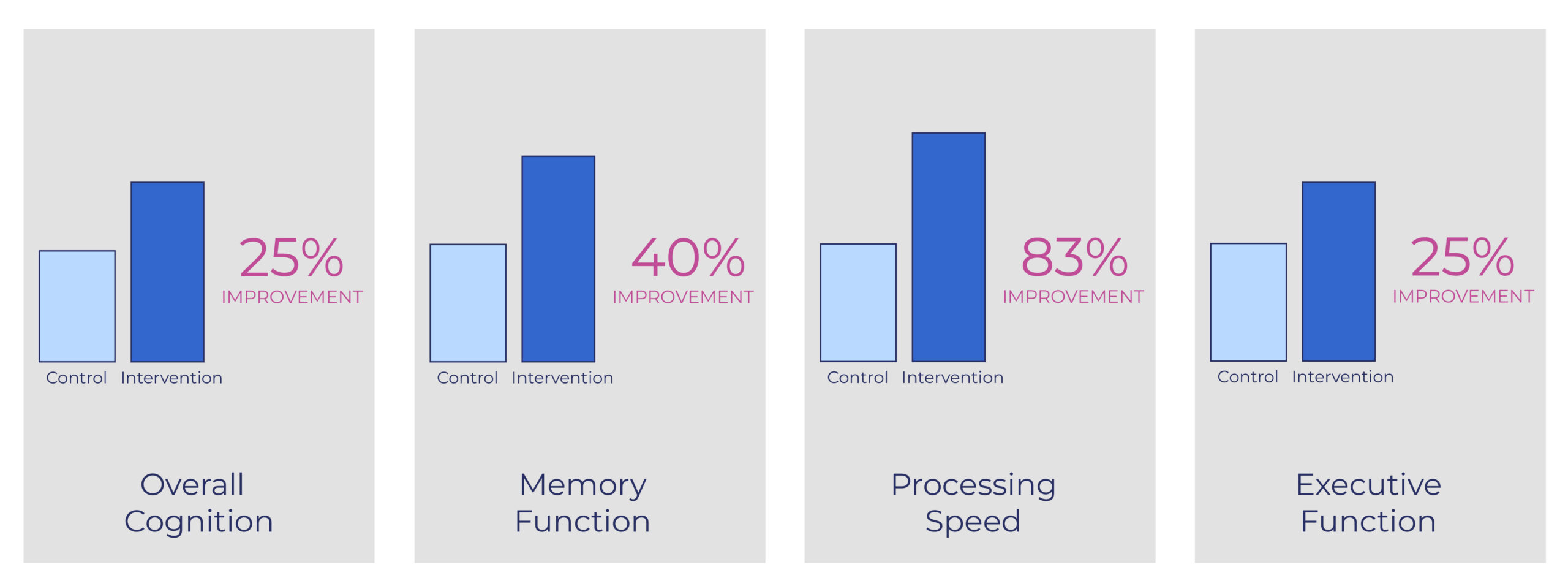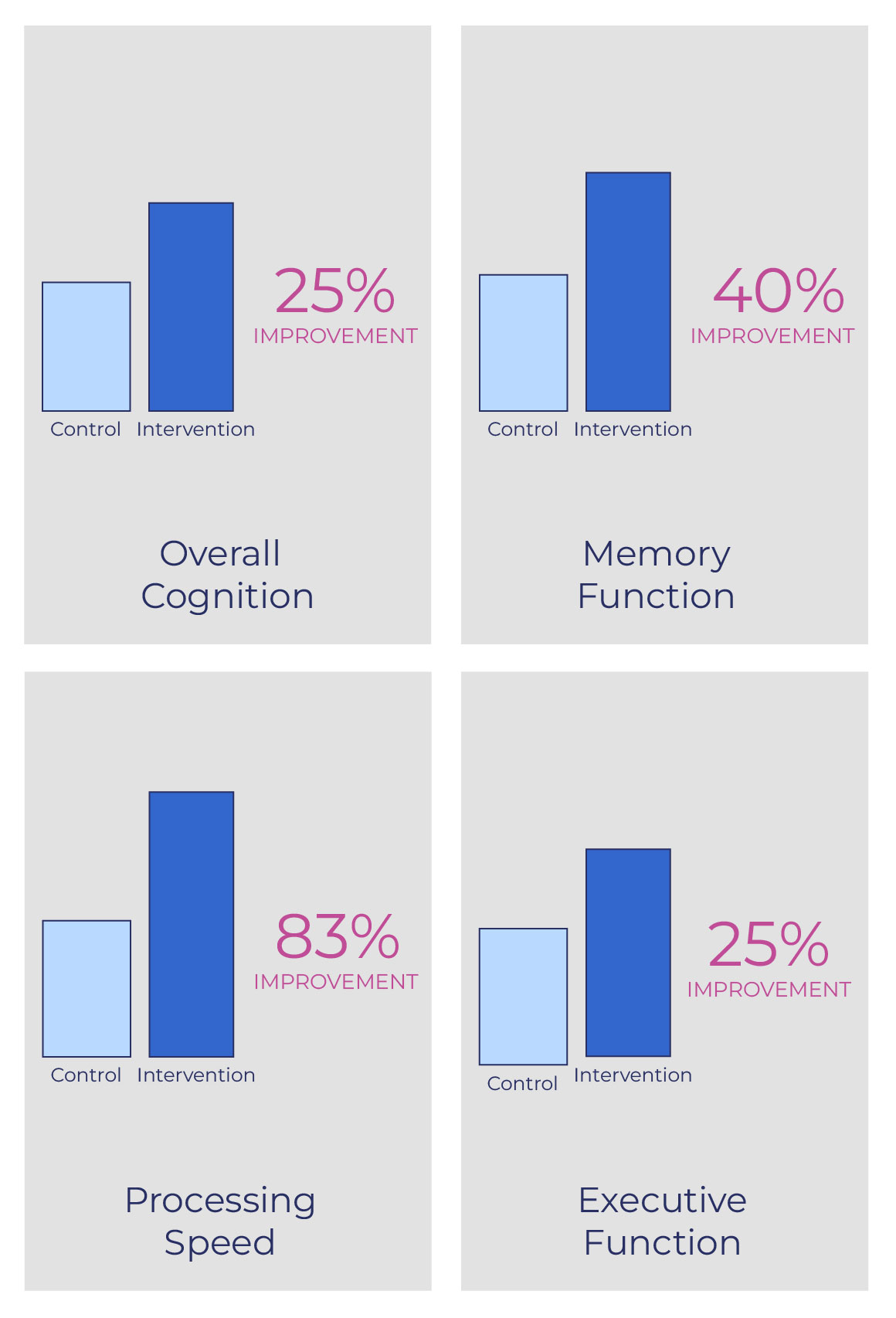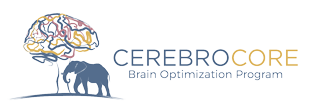The Research on CerebroCore Workouts
![]()
Preventing Alzheimer’s disease and related cognitive decline is a global priority. In 2015, the Finnish Geriatric Intervention Study to Prevent Cognitive Impairment and Disability, also known as the Finger Study, was published in The journal of Prevention of Alzheimer’s Disease.
The Finger Study was a multi-year study of 1,200 adults at risk for cognitive decline. People who engaged in a cognitive training, and lifestyle changes demonstrated improved cognitive performance.
This landmark study provides strong scientific evidence that targeted intervention can positively impact cognition and memory over time – even in people who are at risk for decline. The Finger Study has been adapted on a global scale, with clinical studies taking place in multiple countries.


STUDY
Anderson et al., 2013
FINDINGS
After training, older adults exhibited faster neural timing and experienced gains in memory, speed of processing, and speech-in-noise perception, whereas a matched control group showed no changes
STUDY
Rosen et al., 2013
FINDINGS
Results suggest that the hippocampus in patients with mild cognitive impairment, may retain sufficient nueroplasticity to benefit from cognitive training
STUDY
Smith et al., 2003
FINDINGS
Results demonstrate that CerebroCore Workouts benefit memory and attention
STUDY
Zelinski et al., 2003
FINDINGS
Gains in memory recall were maintained for 3 months after training was complete
STUDY
Ngandu et al., 2003
FINDINGS
Targeted intervention can positively impact cognition over time – even in people who are at risk for decline. The FINGER study has been adapted on a global scale, with clinical studies taking place in multiple countries
